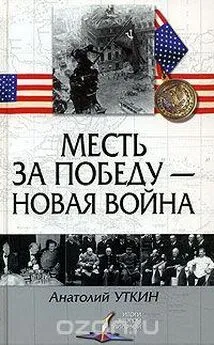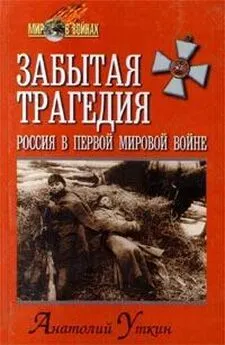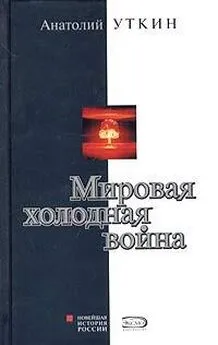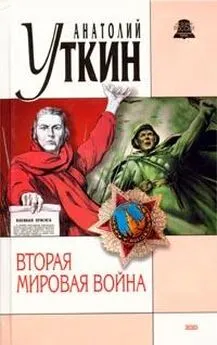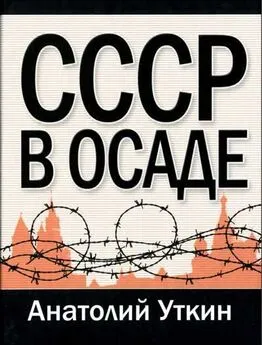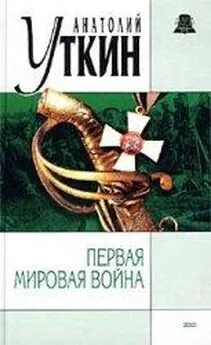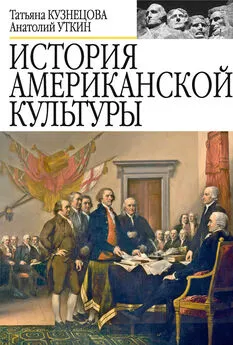Анатолий Уткин - Месть за победу — новая война
- Название:Месть за победу — новая война
- Автор:
- Жанр:
- Издательство:Экcмо
- Год:2005
- Город:Москва
- ISBN:5-699-13363-1
- Рейтинг:
- Избранное:Добавить в избранное
-
Отзывы:
-
Ваша оценка:
Анатолий Уткин - Месть за победу — новая война краткое содержание
Великая Победа советского народа во Второй мировой войне привела к новой расстановке сил в Европе и мире. В сферу влияния СССР вошли страны всех континентов, объединенные общим порывом к справедливому устройству общества. Запад ответил на увеличение влияния стран народной демократии холодной войной, которая привела к поражению советской сверхдержавы и распаду социалистическою лагеря. Но и этого оказывается недостаточно: единственная сверхдержава стремится к тотальному пересмотру итогов Второй мировой и контролю над природными ресурсами планеты. Известный ученый–американист А. И.Уткин убедительно доказывает, что новый глобальный передел мира уже идет. И в центре схватки — вновь Россия с ее колоссальными запасами сырьевых ресурсов. Поэтому не случайны «бархатные» и «оранжевые» революции на постсоветском пространстве, войны на Балканах, в Ираке и Афганистане, спланированные и развязанные США в последнее время. Американский реваншизм — это месть за Великую Победу СССР над фашизмом.
Месть за победу — новая война - читать онлайн бесплатно полную версию (весь текст целиком)
Интервал:
Закладка:
124
Reinecke W. Global Public Policy («Foreign Affairs», Nov./Dec. 1997, p. 137).
129
125
«Foreign Policy», Fall 1999, p. 46.
126
Held D. e.a. Global Transformations. Politics, Economics and Culture. Cambridge: Polity Press, 1999, p. 53.
127
Zacher M. International organizations (In: Krieger J. — ed. The Oxford Companion to Politics of the World. Oxford: Oxford University Press, 1993.
128
Kenichi Omae. The End of the Nation State. New York: Free Press, 1995.
129
Rieff D. A Second American Century? The Paradoxes of Power («World Policy Journal», Winter 1999/2000, p. 12).
130
Kennedy P. The Next American Century? («World Policy Journal», Spring 1999, p. 57).
131
Strange S. The Retreat of the State. Cambridge, 1996, p. 199.
132
Moynihan D. P. Pandemonium: Ethnicity in International Politics. New York: Oxford University Press, 1993, p. 83.
133
Waltz K. Globalization and American Power («The Nationa! Interest», Spring 2000, p. 51).
134
Enriques J. Too Many Flags? («Foreign Policy», Fail 1999, p. 31).
135
Buchheit L. Secession: The Legitimacy of Self‑Determination. New Hawen, 1978, p. 222.
136
Наппит Н. The Specter of Secession. Responding to Claims for Ethnic Self‑Determination («Foreign Affairs», March — April 1998, p. 13)
137
Popper K. The Open Society and Its Enemies. Vol. 2. Princeton, 1963, p. 49.
138
Smith A. The Ethnic Origins of Nations. Oxford, 1986, p. 219.
139
Hodge С. Op. cit., p. 13.
140
«World Policy Journal», Spring (997, p. 16. 2 Bell С. American Ascendancy. And the Pretense of Concert («The National Interest», Fall 1999, p. 61).
141
«World Policy Journal», Spring 1997, p. 16.
142
«World Policy Journal», Summer 1998, p. 30.
143
Ibid., p. 19.
144
Fuller G. Op. cit., p. 17.
145
Blank S. Drift and Mastery («European Security», Autumn 1997, p. 3).
146
World Policy Journal», Summer 1999, p. 1.
147
«Foreign Policy», Fall 1999, p. 42.
148
«Foreign Policy», Fall 1999, p. 44.
149
Ibid., p. 243–244.
150
Zakaria F. The challenges of American hegemony («International Journal», Winter 1998/9, p. 24).
151
См.: Modelski G., Tompson W. The Long and Short of Global Politics in the Twenty–first Century. An Evolutionary Approach («International Studies Review». Summer 1999, № 1, p. 116).
152
Gurr T. Ethnic Warfare on the Wane («Foreign Affairs», May/June 2000, p. 63).
153
Rieff D. A New Age of Liberal Imperialism? («World Policy Journal», Summer 1999, p. 3).
154
Ibid, p. 8.
155
Rosenau J. Along the Domestic — Foreign Frontier: Exploring Governance in a Turbulent World. Cambridge, 1997, p. 151 — 152.
156
Haass R. The Reluctant Sheriff. The United States After the Cold War. N. Y., 1997, p. 41.
157
Ibid.
158
TofflerA. and H. War and Anti — War. Survival at the Dawn of the 21 stCentury. Boston, 1993, p. 23.
159
Paarlberg R. The Global Food Fight («Foreign Affairs», May/June 2000, p. 26).
160
Cuthberson I. Chasing the Chimera. Securing the Peace («World Policy Journal», Summer 1999, p. 79).
161
Miller J. and Broad W. Clinton Sees Threat of Germ Terrorism («International Herald Tribune», Jan. 23–24, 1999, p. 1).
162
The Weapons Proliferation Threat. Washington: Central Inteligence Agency, March 1995.
163
Mandelbaum M. The Future of Nationalism («The National Interest», Fall 1999, p. 22).
164
Kaplan R. The Coming Anarchy («Atlantic», February 1994, p. 44–76); Kaplan M. The Ends of the Earth: A Journey at the Dawn of the Twenty — First Century. New York: Random House, 1996.
165
Toffler A. War and Anti — War. Survival at the Dawn of the 21st Century. Boston, 1993, p. 242.
166
Mandelbaum M. Is Major War Obsolete? («Survival», Fall 1998).
167
Woods N. Order, Globalization and Inequality in World Politics (In: Held D, and McGrevi A. The Global Transformations Reader. Cambridge: Polity Press, 2000, p. 396).
168
Anonymous. Imperial Hubris. Why the West Is Losing the War on Terror. Washington, D. C. Brassey's Inc., 2004, p. 165.
169
Ibid, p. 205.
170
Ferguson N. Clashing Civilizations or Mad Mullahs: The United States Between Informal and Formal Empire (in: Talbott S. and Chanda N. (eds).The Age of Terror. Oxford: The Perseus Press, 2001, p.121).
171
Harvey R. Global Disorder. London: Robinson, 2003, p. 48.
172
Hanson V. Has Iraq Weakened Us? («Commentary», February 2005).
173
Waldron A. Europe's Crisis («Commentary», February 2005).
174
Hanson V. Has Iraq Weakened Us? («Commentary», February 2005).
175
Huntington S. Who We Are? The Challenges To America's National Identity. New York: Simon and Schuster, 2004, p, 38.
176
Vaughan A. Seventeen Century Origins of American Culture (In: Cohen S. and Ratner L., eds. The Development of an American Culture. New York: St. Martin's. 1983, p. 30–32.
177
Kymlicka W. Multicultural Citizenship: A Liberal Theory of Minority Rights. New York: Oxford University Press, 1995, p. 14.
178
Barone М. A Place Like No Other («U. S. News and World Report», June 26, 2004, p. 39).
179
«Foreign Policy», May — June 2004, p. 4.
180
Ibid, p. 9.
181
Carlson R. The Quest for Confirmity: Americanization Through Education. New York: John Wiley, 1775, p. 6–7.
182
Randolph Bourne. «Transnational America» in War and the Intellectuals? New York, 1964, p. 109.
183
U. S. Immigration and Naturalization Service, 2000. Statistical Yearbook.
184
U. S. Census Bureau. Statistical Abstract of the United States: 2001, p. 45.
185
Huntington S. Who We Are? The Challenges To America's National Identity. New York: Simon and Schuster, 2004, p. 199.
186
Waters M. Ethnic and Racial Identities of Second — Generation Black Immigrants in New York City («International Migration Review», Winter 1994, p. 799).
187
Walzer M. What It Means to Be an American. New York: Marcilio, 1992, p. 49.
188
«International Migration Review», Winter 1994, p. 799.
189
«Foreign Policy», May — June 2004, p. 12.
190
«Washington Post», July 16, 2000, р. ВЗ.
191
Miller J. The Unmaking of Americans. New York: Free Press, 1998, p. 134–135.
192
«Freedom Review», Fall 1997, p. 51–52. 4 Huntington S. Who We Are? The Challenges To America's National Identity. New York: Simon and Schuster, 2004, p. 204.
193
Renshon S. Dual Citizens in America. Washington: Center for Immigration Studies, July 2000, p. 6.
194
Suro R. Strangers Among Us. New York: Knopf, 1998, p. 124.
195
Schak P. and Smith R. Citizenship Without Consent: Illegal Aliens in the American Polity. New Haven: Yale University Press, 1985, p. 108.
196
Huntington S. Who We Are? The Challenges To America's National Identity. New York: Simon and Schuster, 2004, p. 219.
197
«The New York Times», June 15, 1998.
198
Cruse H. The Crisis of the Negro Intellectual. New York: Morrow, p. 256.
199
Stotsky S. Losing Our Language. New York: Free Press, 1999, p. 59–62.
200
Glazer N. and Moynihan D. P. Beyond the Melting Pot. Cambridge: MIT Press, 1963, p. 16–17.
201
Huntington S. Who We Are? The Challenges To America's National Identity. New York: Simon and Schuster, 2004, p. 172.
202
Craige B. J. American Patriotism in a Global Society. Albany: State University of New York, 1996, p. 66.
203
Nava e.a. Educating Americans in a Multicultural Society. New York: McGrow — Hill, 1994, p. V.
204
Banks J. Multiethnic Education: Theory and Practice. Boston: Allyn and Bacon, 1994, p. 3.
205
Glazer N. and Ueda R. Ethnic Groups in History Texbooks. Washington: Ethics and Public Policy Center, 1983, p. 15.
206
Craige B. J. American Patriotism in a Global Society. Albany: State University of New York, 1996, p. 65–66.
207
Mesinger A. M. The Disuniting of America. New York: Norton, 1992, p, 123.
208
Glazer N. We Are All Multiculnuralists Now. Cambridge: Marsilio, 1992, p. 83.
209
Huntington S. Who We Are? The Challenges To America's National Identity. New York: Simon and Schuster, 2004, p. 176.
210
«The New York Times», November 29, 1999, p. A14.
211
Flores W. and Benmayor R. Latino Cultural Citizenship: Claiming Identity, Space, and Rights. Boston: Beacon Press, 1997, p. 3–10.
212
«Boston Globe», January 8, 1995. 3 Castaneda J. Ferocious Differences («Atlantic Monthly», July 1995, p. 76).
Читать дальшеИнтервал:
Закладка:
